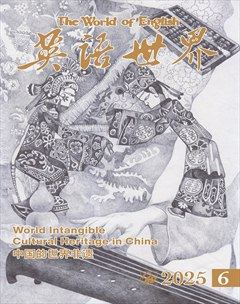The past year, described as the biggest election year in recorded history, is considered to be one of the biggest years for the spreading of misinformation and disinformation. Both refer to misleading content, but disinformation is deliberately generated. Political parties have long competed for voter approval and subjected their differing policies to public scrutiny. But the difference now is that online search and social media enable claims and counterclaims to be made almost endlessly.
过去的一年被称为有史以来最重大的选举年,也被认为是错误信息和虚假信息传播最为严重的年份之一。这两种信息均为误导性信息,不过虚假信息是人为有意制造出来的。长期以来,各党派竞相争取选民的支持,各自的政治主张受到公众的审视。现如今的不同之处在于,网络搜索与社交媒体使正反主张几乎可以无休止地提出。
A recent study in Nature highlights a previously underappreciated aspect of this phenomenon: the existence of data voids, information spaces that lack evidence, into which people searching to check the accuracy of controversial topics can easily fall. It might no longer be enough for search providers to combat misinformation and disinformation by just using automated systems to deprioritize these sources.
《自然》杂志最近刊登的一篇论文着重指出了此前该现象未被充分重视的一个方面:网络上存在数据真空,也就是缺乏证据的信息空间,上网搜索以核实争议话题准确性的人很容易掉进去。而对于网络搜索服务商来说,依靠系统自动降低信息优先级的办法来打击错误信息和虚假信息已不够。
The mechanics of how misinformation and disinformation spread has long been an active area of research. According to the ‘illusory truth effect’, people perceive something to be true the more they are exposed to it, regardless of its veracity. This phenomenon pre-dates the digital age and now manifests itself through search engines and social media.
长期以来,错误和虚假信息的传播机制一直是热门研究领域。根据“真相错觉效应”,接触某个信息的次数越多,人们越容易相信其真实性,而不论它到底是不是真的。这种现象远在数字时代之前就存在,如今通过搜索引擎和社交媒体呈现出来。
In their recent study, Kevin Aslett, a political scientist at the University of Central Florida in Orlando, and his colleagues found that people who used Google Search to evaluate the accuracy of news stories—stories that the authors but not the participants knew to be inaccurate—ended up trusting those stories more. This is because their attempts to search for such news made them more likely to be shown sources that corroborated an inaccurate story.
奥兰多中佛罗里达大学的政治学家凯文·阿斯利特及其同事在最近的研究中发现,有些新闻报道的参与者不知道但作者知道它有误,而利用谷歌搜索来评估其准确性的人最终愈发相信这些新闻。





